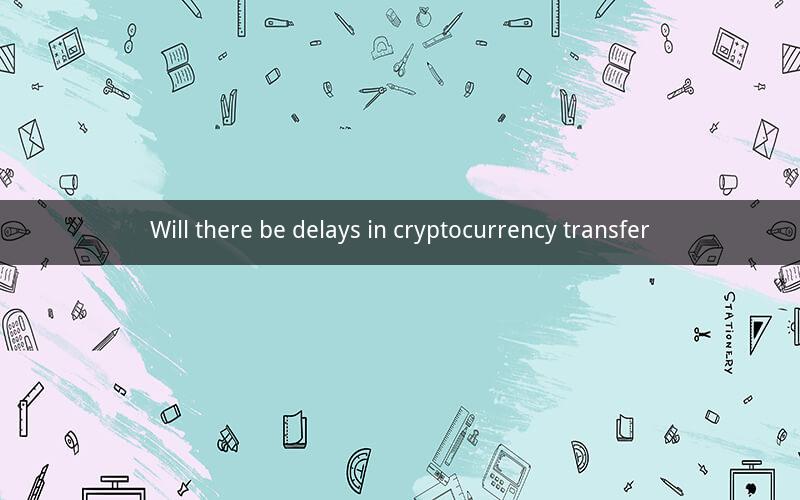
Understanding Cryptocurrency Transfer Delays
Table of Contents
1. Introduction to Cryptocurrency Transfer
2. Factors Influencing Cryptocurrency Transfer Speed
3. Common Cryptocurrency Transfer Delays
4. The Role of Blockchain Network in Transfer Delays
5. Preventive Measures to Avoid Delays
6. The Future of Cryptocurrency Transfer Speed
1. Introduction to Cryptocurrency Transfer
Cryptocurrency transfer is the process of moving digital assets from one wallet to another. Unlike traditional banking systems, cryptocurrency transfers operate on decentralized networks known as blockchains. This technology enables users to send and receive funds without the need for intermediaries such as banks or financial institutions.
2. Factors Influencing Cryptocurrency Transfer Speed
Several factors can influence the speed of a cryptocurrency transfer. Some of the most common include:
- Network congestion: High levels of network traffic can lead to delays in transaction processing.
- Transaction fees: Higher fees can incentivize miners to prioritize transactions, thereby reducing delays.
- Block size: The size of a block in the blockchain network can impact the time it takes to process transactions.
- Network security: A secure network can reduce the likelihood of delays due to hacking or malicious activities.
3. Common Cryptocurrency Transfer Delays
Several issues can cause delays in cryptocurrency transfers. These include:
- Confirmation time: The time it takes for a transaction to be confirmed by the network can vary depending on the cryptocurrency and network congestion.
- Blockchain synchronization: When the blockchain is not fully synchronized, it can lead to delays in transaction processing.
- Node issues: Technical issues with blockchain nodes can cause delays in transaction confirmation.
4. The Role of Blockchain Network in Transfer Delays
The blockchain network plays a crucial role in cryptocurrency transfer delays. Some factors that can affect the network's performance include:
- Network latency: The time it takes for data to travel between nodes can cause delays.
- Node availability: When nodes are unavailable or experiencing issues, it can slow down the transfer process.
- Blockchain size: As the blockchain grows, it can become more challenging to synchronize and process transactions, leading to delays.
5. Preventive Measures to Avoid Delays
Several measures can help prevent delays in cryptocurrency transfers. These include:
- Using a reliable wallet: Choose a reputable wallet that supports fast transaction processing.
- Optimizing transaction fees: Pay attention to transaction fees and adjust them based on network congestion.
- Regularly updating your software: Keeping your wallet and blockchain client updated can help avoid compatibility issues and improve transaction processing.
6. The Future of Cryptocurrency Transfer Speed
The future of cryptocurrency transfer speed appears promising. As technology continues to evolve, several advancements are expected to improve transfer speeds and reduce delays. Some of these include:
- Layer 2 solutions: These are secondary networks built on top of the main blockchain to process transactions faster.
- Sharding: This technology allows the blockchain to be divided into smaller segments, enabling faster processing of transactions.
- Quantum-resistant algorithms: These algorithms can make blockchains more secure and less susceptible to delays caused by malicious activities.
FAQs
1. How long does it take to transfer cryptocurrency?
The time it takes to transfer cryptocurrency can vary depending on the cryptocurrency and network congestion. Generally, it can take anywhere from a few minutes to several hours.
2. Can I speed up a cryptocurrency transfer?
Yes, you can speed up a cryptocurrency transfer by paying higher transaction fees and using a reliable wallet.
3. Why are there delays in cryptocurrency transfers?
Delays in cryptocurrency transfers can be caused by network congestion, high transaction fees, blockchain synchronization issues, and technical problems with blockchain nodes.
4. What is the role of blockchain network in transfer delays?
The blockchain network plays a crucial role in transfer delays. Network latency, node availability, and blockchain size can affect the performance of the network and lead to delays.
5. How can I avoid delays in cryptocurrency transfers?
To avoid delays in cryptocurrency transfers, use a reliable wallet, optimize transaction fees, and keep your software updated.
6. What is the future of cryptocurrency transfer speed?
The future of cryptocurrency transfer speed looks promising. Advancements such as layer 2 solutions, sharding, and quantum-resistant algorithms are expected to improve transfer speeds and reduce delays.
7. How can I check the status of my cryptocurrency transfer?
To check the status of your cryptocurrency transfer, use a blockchain explorer or your wallet's transaction history feature.
8. Can I cancel a cryptocurrency transfer?
In most cases, once a cryptocurrency transfer has been initiated, it cannot be canceled. However, you can contact the recipient and ask them to cancel the transaction on their end.
9. How can I prevent my cryptocurrency wallet from being hacked?
To prevent your cryptocurrency wallet from being hacked, use strong passwords, enable two-factor authentication, and keep your software updated.
10. How can I track my cryptocurrency transfers?
You can track your cryptocurrency transfers using a blockchain explorer or your wallet's transaction history feature.